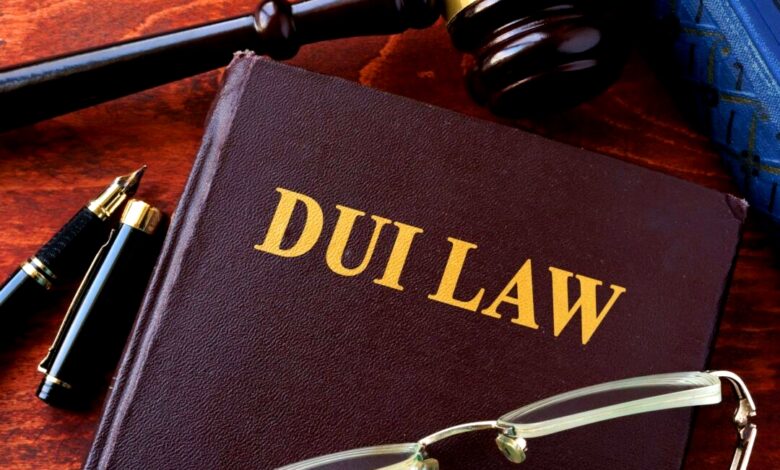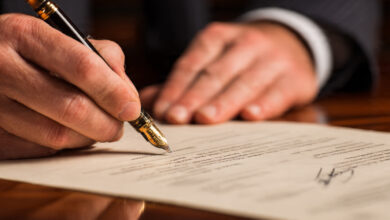What to Look for When Hiring DUI Lawyer in North Carolina
When hiring a DUI lawyer in North Carolina, look for experience, local expertise, strong reviews, clear communication, and proven record of handling DUI cases.

Facing a DUI (Driving Under the Influence) charge in North Carolina can be an overwhelming experience. The legal implications, fines, potential jail time, and impact on your driving record make hiring the right DUI lawyer a critical decision. Not all attorneys are created equal, and choosing the right one can make a significant difference in the outcome of your case. Here are the key factors to consider when hiring a DUI lawyer in North Carolina.

1. Experience in DUI Defense
DUI cases require specialized legal knowledge. Laws and procedures surrounding DUI offenses can vary from state to state, so it’s crucial to hire a lawyer who has extensive experience handling DUI cases in North Carolina.
An experienced DUI lawyer will understand:
- The nuances of North Carolina’s DUI laws, including implied consent rules and penalties for refusal of breath or blood tests.
- The local court system and how judges and prosecutors typically handle DUI cases.
- Strategies to challenge evidence such as breathalyzer results, field sobriety tests, and police procedures.
Ask the attorney how many DUI cases they’ve handled and about their track record of successful outcomes.
2. Local Knowledge
Hiring a lawyer who practices regularly in North Carolina is invaluable. Local attorneys often have established relationships with judges, prosecutors, and court staff, which can be beneficial when negotiating plea deals or navigating the court process.
North Carolina has 100 counties, and each court system operates a bit differently. A lawyer familiar with the specific county where your case is being heard can better anticipate challenges and opportunities unique to that jurisdiction.
3. Reputation and Reviews
Research the lawyer’s reputation by reading online reviews, testimonials, and peer ratings. Check platforms like Avvo, Google Reviews, or the North Carolina State Bar’s website. A lawyer with positive reviews and a solid reputation among clients and peers is more likely to provide quality representation.
Word-of-mouth referrals from friends, family, or colleagues who have faced similar charges can also be helpful. Be cautious, however, and conduct your own research to verify their recommendations.
4. Specialization
While many attorneys handle a wide range of cases, you’ll want someone who specializes in DUI or criminal defense. Lawyers with a dedicated focus on DUI defense will be up-to-date on the latest legal developments, technology used in DUI cases, and effective defense strategies.
5. Communication Skills
Your attorney should be someone you feel comfortable communicating with. They should be accessible, responsive, and able to explain complex legal concepts in a way you can understand. During your initial consultation, ask:
- How will they keep you informed about your case?
- Will you have direct access to them or communicate primarily with their staff?
- How quickly do they typically respond to emails or calls?
Clear and open communication can ease the stress of navigating a DUI case and ensure you’re fully informed about your options.
6. Case Strategy
A skilled DUI lawyer should be able to outline a clear strategy for your case. During your consultation, ask about their approach to handling DUI cases like yours. They should evaluate the details of your arrest, including:
- The legality of the traffic stop.
- The accuracy and calibration of breathalyzer devices.
- Whether field sobriety tests were administered correctly.
Your lawyer should identify any potential weaknesses in the prosecution’s case and explain how they plan to address them.
7. Cost and Fee Structure
Legal representation can be expensive, so it’s important to understand the lawyer’s fee structure upfront. DUI lawyers typically charge either a flat fee or an hourly rate. Ask for a detailed breakdown of costs and what services are included.
Keep in mind that the cheapest lawyer isn’t always the best option. A higher fee may be worth it if the attorney has extensive experience and a strong track record of success.
8. Certifications and Training
Some DUI lawyers hold specialized certifications or have completed advanced training in DUI defense. For example, certifications in Standardized Field Sobriety Testing (SFST) or knowledge of breathalyzer equipment can give your attorney an edge when challenging evidence.
Check if the lawyer is a member of professional organizations such as the National College for DUI Defense (NCDD) or the North Carolina Advocates for Justice (NCAJ). Membership in these organizations often indicates a commitment to excellence and ongoing education.
9. Compatibility and Trust
You’ll be working closely with your lawyer throughout the duration of your case, so it’s essential to feel comfortable with them. Trust your instincts during the initial consultation. If the lawyer seems dismissive, overly aggressive, or uninterested in your concerns, they may not be the right fit.
10. Success Rate
While no lawyer can guarantee an outcome, a high success rate in DUI cases is a good indicator of their competence. Ask the attorney about their history of dismissals, reductions in charges, or not-guilty verdicts. A proven track record demonstrates their ability to effectively navigate DUI cases.
11. Free Initial Consultation
Many DUI lawyers offer a free initial consultation. Use this opportunity to ask questions, evaluate their expertise, and determine if they’re a good fit for your case. Prepare a list of questions in advance, such as:
- What are the potential consequences of a conviction in my case?
- How often do you handle cases like mine?
- What are the possible defense strategies for my situation?
Conclusion
Choosing the right DUI lawyer in North Carolina can significantly impact the outcome of your case. By focusing on factors like experience, local knowledge, communication, and reputation, you can make an informed decision. Remember, this isn’t just about finding a lawyer—it’s about finding the right lawyer who will advocate for your best interests and work tirelessly to achieve the best possible outcome. Don’t rush the process; take the time to research and consult with multiple attorneys before making your choice. With the right legal representation, you can navigate this challenging time with confidence and clarity.











